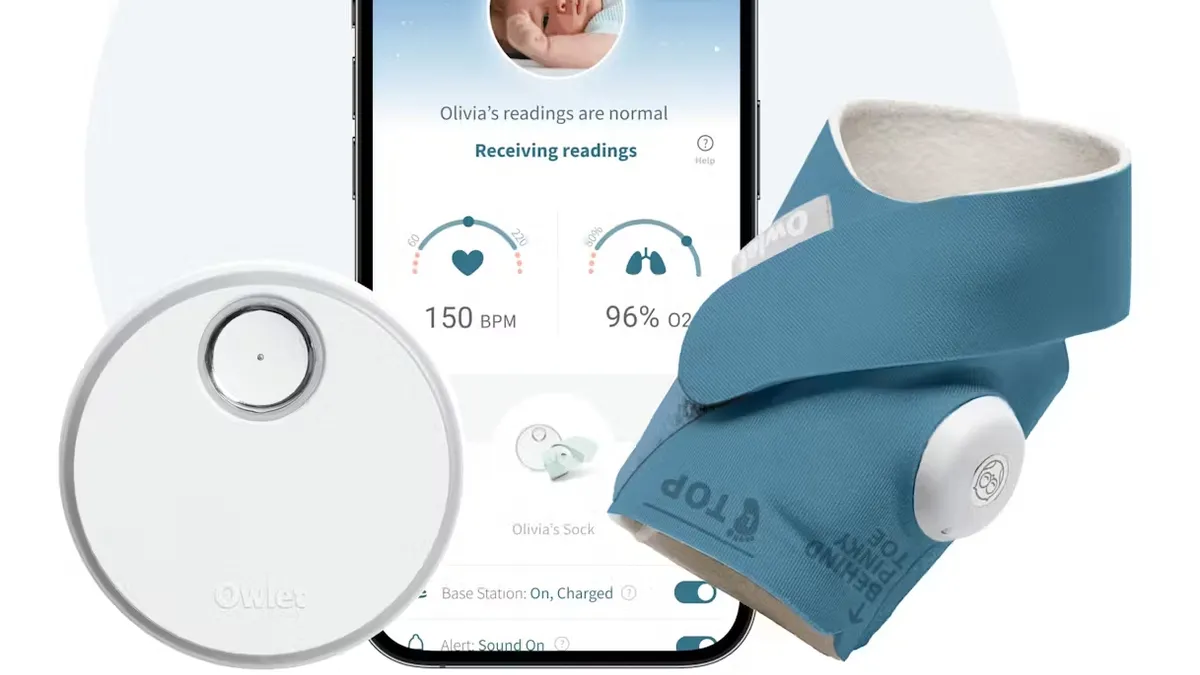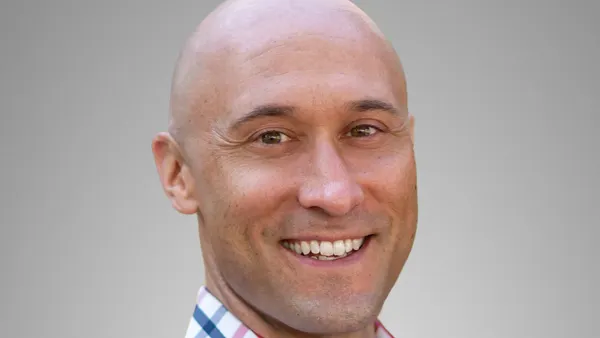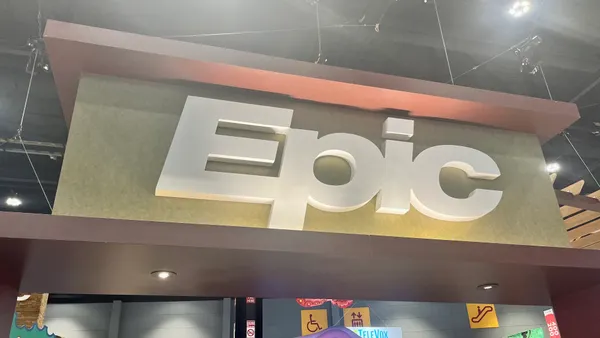Dive Brief:
- Owlet has received clearance from the Food and Drug Administration for a smart baby sock, setting it up to launch the device later this year.
- The 510(k) clearance covers a prescription-only sock that uses pulse oximetry to track a baby’s pulse rate and oxygen saturation and sends alerts if the readings fall outside the target range.
- Owlet used to sell a similar device directly to consumers but pulled the product from the market after the FDA issued a warning letter accusing the company of selling a medical device without marketing clearance or approval.
Dive Insight:
The 510(k)-cleared BabySat device is designed for physician-supervised monitoring of babies that healthcare providers determine could benefit from additional oversight at home. Once the wireless sock is placed on the baby’s foot, the device captures pulse rate and oxygen saturation data and sends the information to a mobile app.
Owlet’s earlier device, Smart Sock, had similar features but BabySat “has adjusted reading levels,” the company said. Smart Sock is now only available outside the U.S. and Canada and Owlet does not plan to sell the older device in those North American markets.
Securing 510(k) clearance for BabySat marks a step in Owlet’s attempt to recover from its regulatory problems even as it continues to deal with the fallout. A class action complaint is advancing through the U.S. legal system and Owlet’s financial position still reflects its recent difficulties.
With Smart Sock unavailable in key markets, Owlet’s revenues dropped 50% to $10.7 million in the first quarter. The company has relied on devices including Dream Sock, a consumer product for tracking a baby’s sleep indicators, for sales while working to get BabySat to market. Owlet has filed a de novo request with the FDA to add “opportunistic pulse rate and oxygen notifications” to Dream Sock.
Owlet has taken steps to reduce costs, halving its operating expenses in the first quarter. Still, it still faces financial pressures. The company had $24.8 million in cash at the end of March and warned investors of a substantial doubt about its ability to continue as a going concern.













